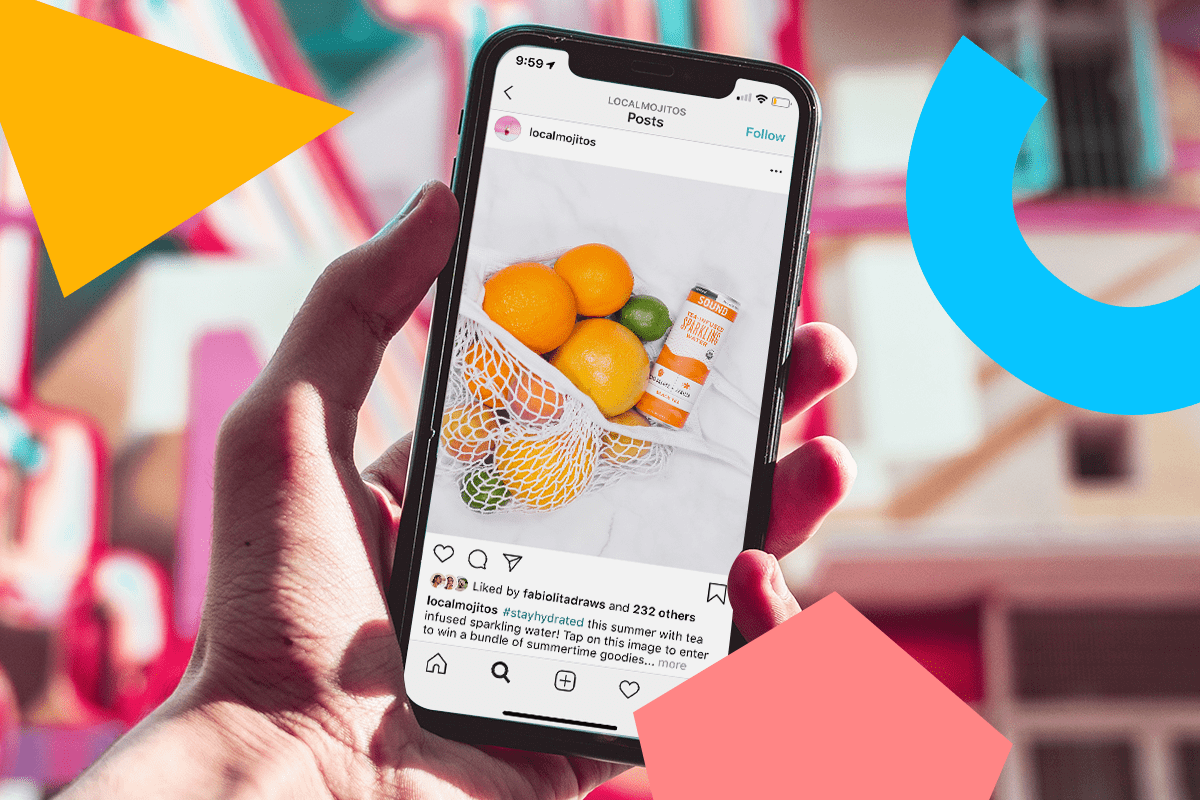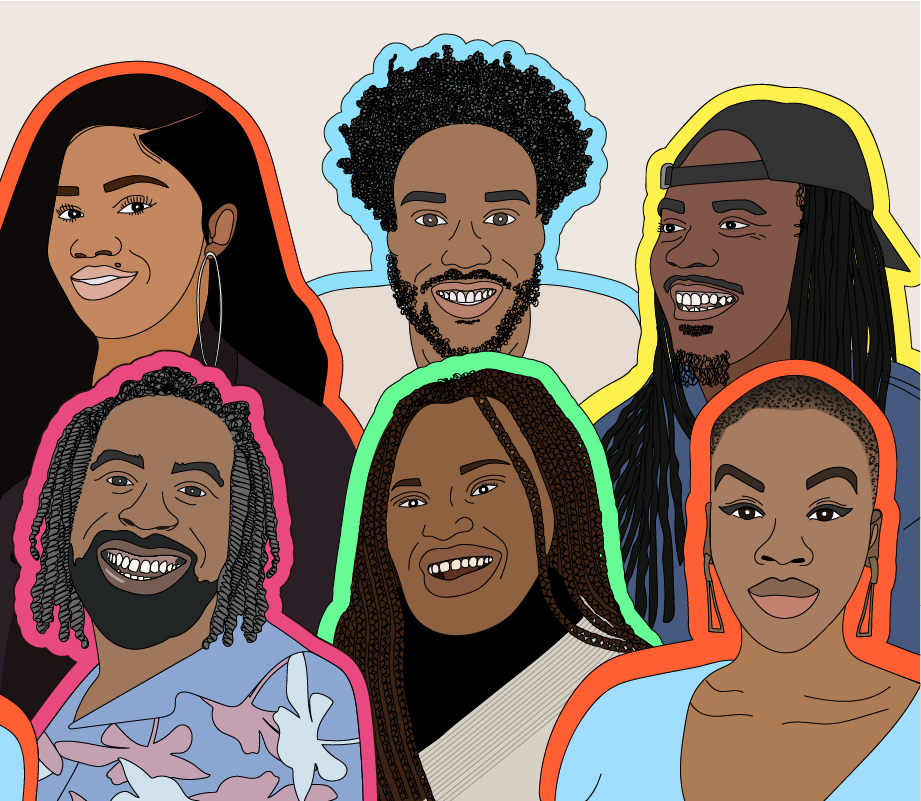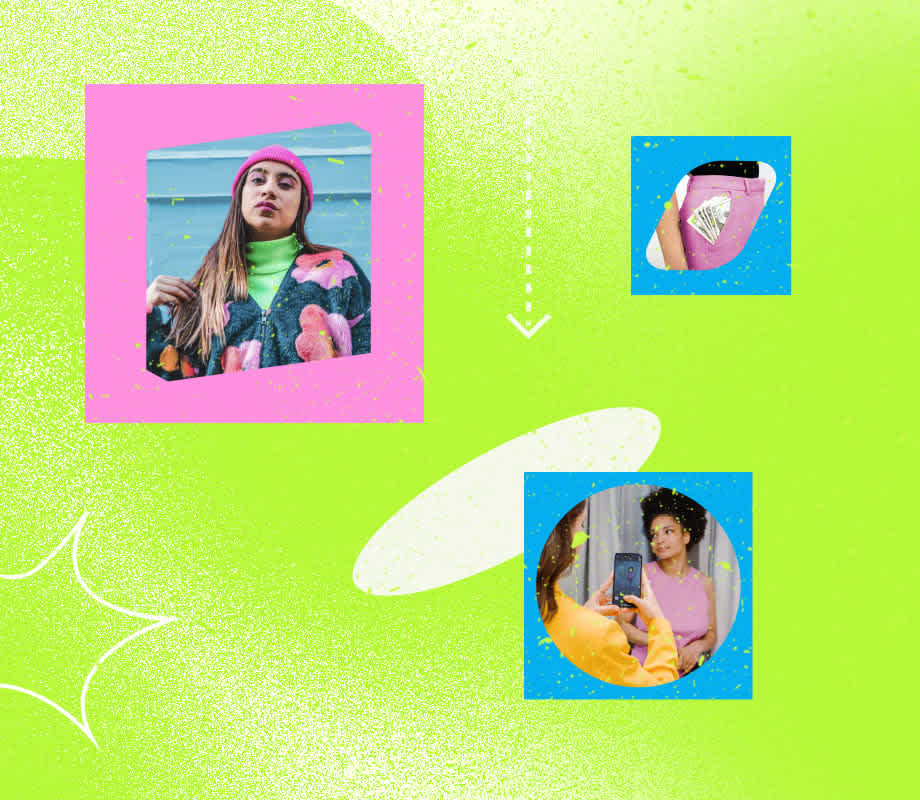Brand collaborations on Instagram are quickly becoming one of the most popular ways to grow your following and promote your brand online.
Not to be confused with influencer partnerships, brand collaborations see two (or more!) brands team up to create a product offering that works across their combined audiences.
The result? A super-engaging campaign that doesn’t blow the budget!
We asked Jessica Ruhfus, Founder & CEO Collabosaurus, a matchmaking platform for brands looking to collaborate, to share her industry insights. Here’s everything there is to know about brand x brand collaborations on Instagram:
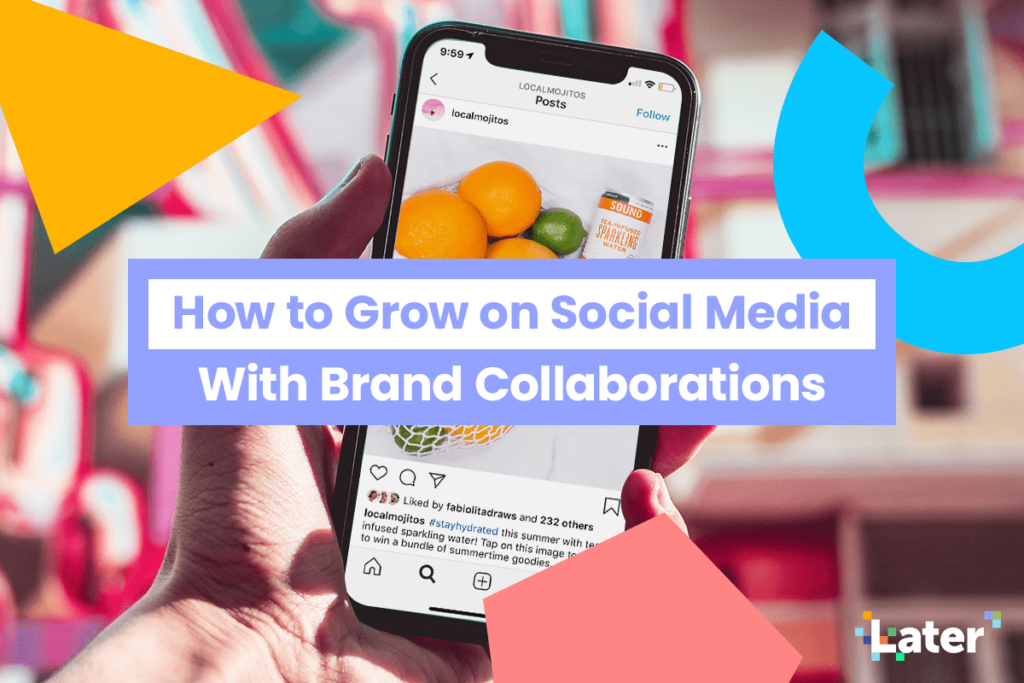
What are Brand Collaborations on Instagram?
The word ‘collaboration’ gets thrown around a lot — so it’s all too easy for brands and business owners to get confused when a collaboration opportunity knocks.
From internal team collaborations to influencer collaborations, to sales meetings hiding under the guise of ‘hey, want to collab?’ — combining forces on projects has always been a go-to strategy. But the new way to promote your brand online is with brand x brand collaborations.
Brand x brand collaborations are when two or more businesses team up, create something unique and exclusive for a campaign, and help each other grow in the process.
In short, collaboration marketing is a win-win strategic exchange of value. And with some collaborations partnerships not costing a penny, there’s no reason not to explore them as an option!
What are the Benefits of Brand x Brand Collaborations?
Before we jump into all the benefits of brand collaboration, the most important thing to know is that they are up to 25x less expensive than digital advertising!
Plus, when you factor in multi-channel marketing, network growth, and alignment opportunities, brand collaborations are one of the most powerful, cost-effective strategies for marketing your brand!
An AMEX study determined that mid-sized companies in Australia should be collaborating 5 or more times each year, for results that average either $319,000 in savings or $430,000 in increased sales (yep, it’s massive!).
And if that doesn’t convince you, here’s a couple of other key benefits of brand x brand collaborations:
Reach new potential customers through clever cross-promotions
Boost / add a revenue stream
Create content
Engage your audience
Grow your social media community
Grow your network
Attract publicity & build buzz
The benefits really are endless, but it all comes down to who you partner with and the campaign strategy you lead together.
Brand x Brand Collaborations on Instagram
There’s no better place to promote your brand x brand collaborations than on social media.
In fact, some brands decide to make Instagram exclusive events or products as part of their campaign as they have great social media ripple effects.
For collaboration ideas that sit purely on social media, think competitions and giveaways, hashtag challenges, or content collaborations — all of which are all fantastic ways your business can reach new audiences quickly and cost-effectively.
Take, for example, Elle Effect x Tuchuzy Instagram giveaway — with the goal to drive email list sign-ups, the brands teamed up to create an exclusive co-branded prize for their followers.
The result? High engagement across both @eleffect and @tuchuzystore’s Instagram accounts and major growth in their newsletter sign-ups.
Want to reap some of the same benefits? We’ve got you covered with our simple 8-step plan to setting up your first brand collaboration on Instagram!
How to Run Your First Brand x Brand Collaboration on Instagram:
Ready to jump into the details? We’re breaking it down step-by-step on how to set up your first brand x brand collaboration on Instagram!
#1: Identify Your Campaign Goal
Like with any marketing strategy, you’ll want to get clear on what you want to achieve in a brand collaboration.
Collaboration “for the sake of it” never works and it’s also a common misconception that you need to start with a big, creative idea for a collaboration in order to get started.
Instead, we recommend starting with understanding your business’s marketing objectives. That way, your collaboration can work to help you achieve your marketing goals, such as; email list growth, or Instagram growth, product sales, or content creation.
Whatever your goals may be, they’ll help inform who you should be partnering up with, which means a much smoother process for set up your campaign from the get-go!
#2: Find the Right Collab Partner
Collabosaurus match-makes your brand with complementary businesses straight away! Which can help take some of the guess-work out of finding the best fit for your campaign.
All you have to do is pitch your idea by listing an opportunity on the Collabosaurus site, then we’ll match you with the best partners from our database of over 6.5K brands and businesses! No heavy lifting or research required!
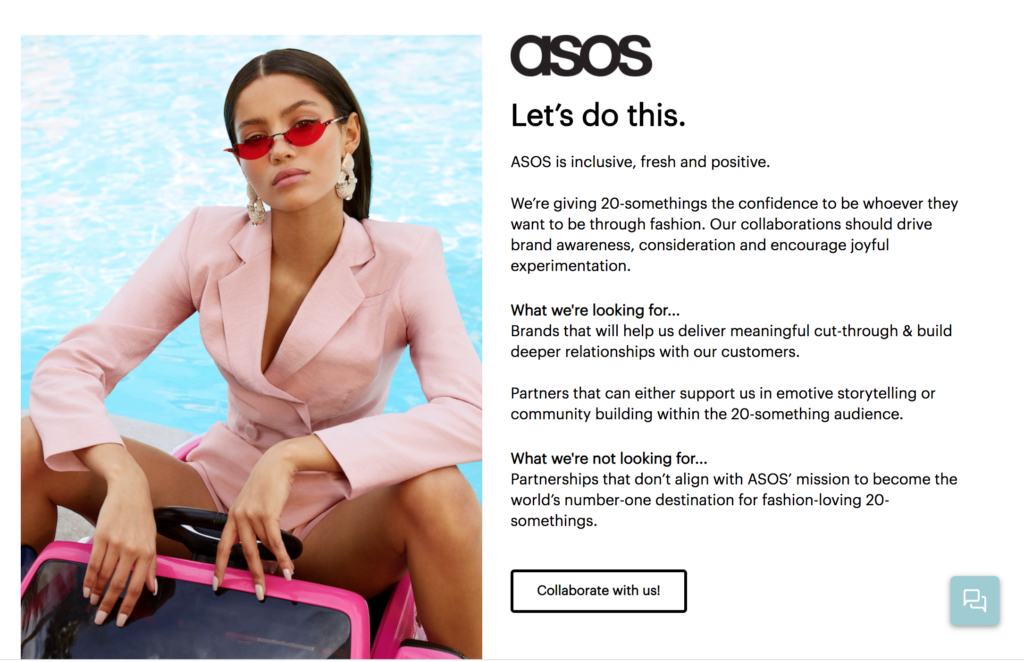
But if you’re going to do it the old-school way, make sure you have similar target markets, you’re in complementary industry spaces and your goals align to add value to your communities (that way, any cross-promotion you do will be extremely valuable!).
For example, a nutritionist x personal trainer makes sense thematically, as well as having complementary audiences.
This is why we love collaborations like Gelato Messina x Bumble, who collaborated on ‘Australia’s happiest ice-cream’ — the audience demographics lined up, it was a win-win situation, and the collaboration attracted a bunch of great marketing ripple effects, like user-generated content on social media & media mentions.
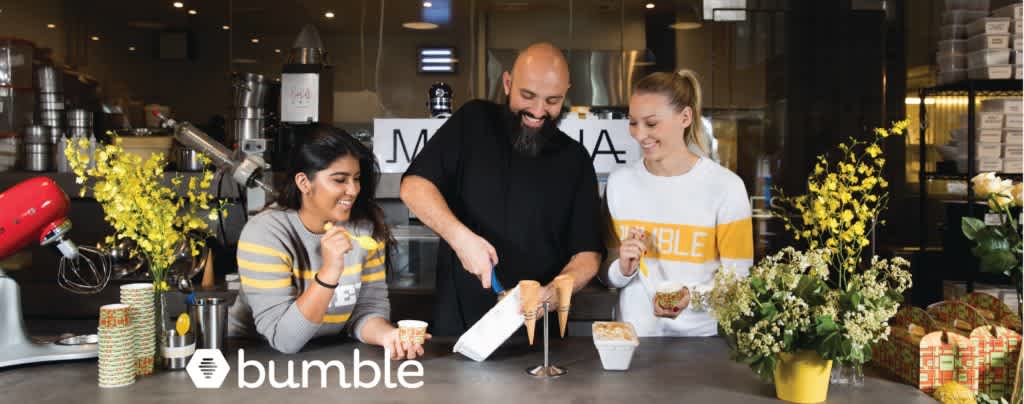
#3: Understand Your Value (& What You Bring to the Table)
Successful collaborations are win-win exchanges of value, so it’s awesome to know what you can bring to the table before reaching out or asking for what you want.
Your products, services, time, skillset, venue space, content creation, social media, and email channels are ALL super valuable business assets you can leverage in a collaboration.
So don’t underestimate the value of your skillset and offerings when it comes to branded collaborations!
#4: Reach Out the Right Way
Yep, that means NO ‘hey, wanna collab?’ DMs or LinkedIn messages (*shudder*).
At the heart of great brand collaborations are relationships, so when you reach out, remember that the person on the other side is HUMAN.

Do your research and personalize your intro note — absolutely NO copy + pasting!
Not sure where to start? Keep it friendly but short, sweet, personalized, and benefits-to-them driven.
#5: Be Open to Negotiate
This is where going into a collaboration with a fully-formed idea can be tricky. We recommend approaching a collaboration with a solid goal and flexible attitude when it comes to creative execution — as this will help you negotiate a fair deal.
Always get a simple contract in place — we recommend Joint Marketing Agreements or MOU documents for smaller-scale collaborations.
TIP: You can get legal contract & agreement templates in the CollaboHub so you can play a bigger game and never be on the back foot – at a fraction of the legal cost!
#6: Leverage for the Best Possible Results
You could have the coolest collaboration in the world, but if no one knows about it, what’s the point?
Leverage is all about building a marketing plan for both of you that works to take advantage of every wonderful marketing channel you each have available to you.
TIP: We have templates at Collabosaurus to help your get started and you can schedule all of your collaborative social content ahead of time with Later!
#7: Get Flirtatious
It’s a common misconception that brand collaborations are one-off, huge campaigns reserved for the big brands! In reality, brands should be collaborating 5+ times each year for the best results.
The trick? Switch up the type of collaboration so you don’t exhaust your audience. Tools like Collabosaurus allow you to connect with likeminded, interested brands with ease: no cold pitching, no big budgets & no need for a big idea.
#8: Schedule, Post, Track, and Communicate!
Finally, once your campaign is locked in, you’re ready to share your project!
On Instagram, it’s easy to build hype around your new co-branded campaign, especially if you utilize tools and features like Instagram Stories countdown stickers and shopping tags if you have a product to sell.
Plus, all your content can be scheduled in advance with Later (even your Instagram Stories!) so there’s no missed opportunity to sharing out your content!
Once your campaign is live, it’s important to keep track of performance and always be in communication with your collab partner.
Share your results with your collaborator and communicate throughout. Better yet, track results against your original marketing goal (just like you would any other marketing strategy).
If you use Later, you can easily track and measure your Instagram engagement on the Analytics Dashboard:
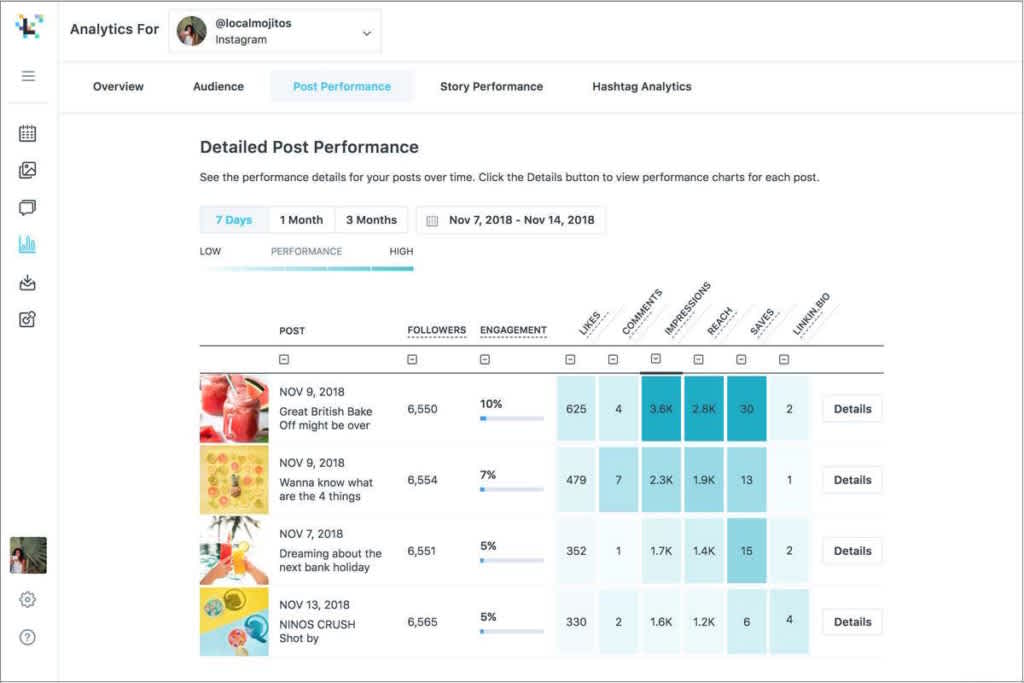
You can get a snapshot of how your campaign posts are performing (with your engagement rate percentage automatically calculated for you!) and compare that performance to your other content or campaigns.
Remember, we suggest hosting 5+ brand x brand collaborations per year to really reap the benefits so you’ll also want to track how each campaign stacked up against each other.
Finally, don’t forget to share your stats with your brand partner — you can download a CSV report in a flash with Later and email it to your team!
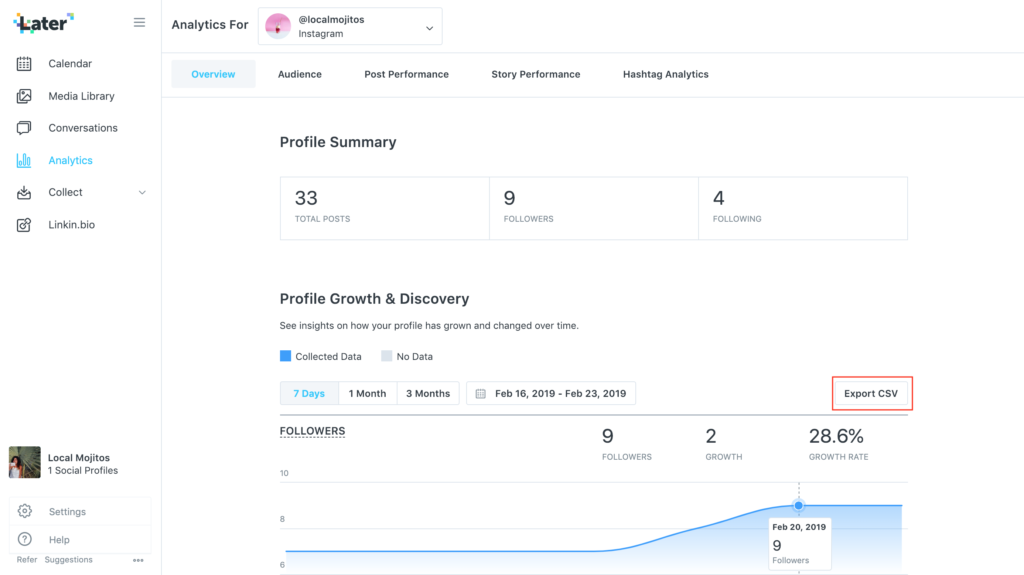
3 Successful Brand x Brand Collaborations on Instagram to Take Inspiration From
#1: Spotify x Chani Nicholas
Spotify teamed up with astrologer Chani Nicholas to release ‘Cosmic Playlists’ — music based on your star sign!
The collab was leveraged with outdoor advertising, social media, and publicity ripple effects, it was also a unique, personalized experience for Spotify users with great cross-promotion.
A Forbes article reported that since release they’ve attracted “some 400,000 followers across the board” and they also won themselves a 2019 Webby award for their efforts!
#2: Chandon x Seafolly
These two brands team up every summer for a limited edition sparkling wine, where the hero swimwear print from Seafolly features on Chandon bottles!
The result? The perfect summer pairing which a ton of great UGG for both brands to utilize!
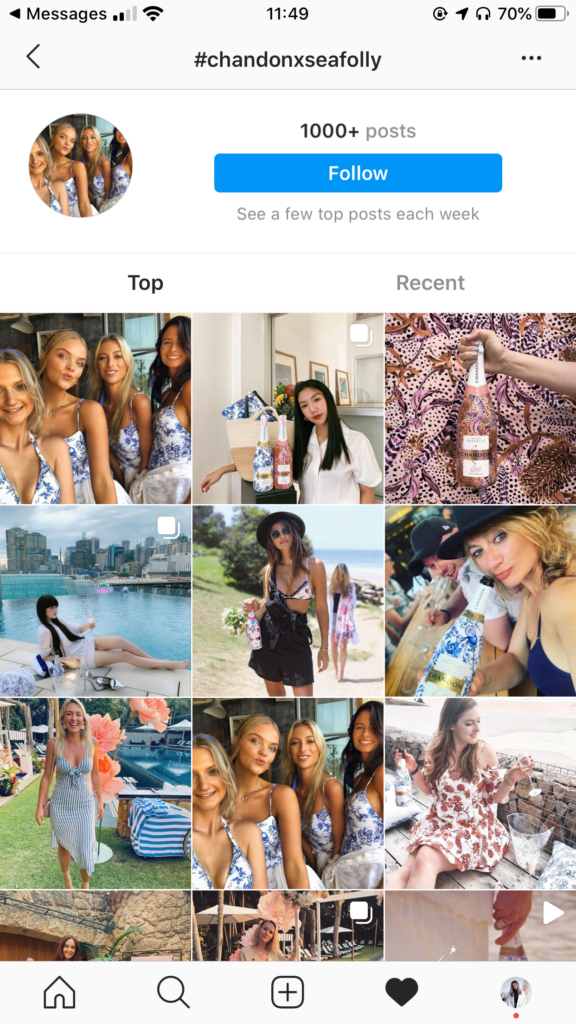
#3: Sourced Styling Studio x Mon Verre
Melbourne-based product & lifestyle Stylist and Photographer, Sourced Styling Studio was looking for ways to increase her online presence and at the same time, build out her portfolio.

Sourced Styling Studio x Mon Verre
She created a listing on Collabosaurus and immediately matched with Mon Verre, a personalized crystal glassware company that was looking for ways to create content and images to capture their products.
Together, they teamed up on some beautiful social content that resulted in exposure to 400 new potential clients, portfolio growth & free product for Sourced Styling Studio, whereas Mon Verre was able to generate stunning new brand content!
It’s the perfect example of how two small businesses can come together for some amazing results!
Brand x brand collaborations on Instagram is one trend you don’t want to miss out on.
With each collaboration, you’re not only doubling your reach, but you’re also growing your network and engaging your audiences with something new — all without breaking the budget!
The best part? Tools like Collabosaurus and Later mean that you can manage your social media collaboration campaign end-to-end in a fraction of the time!
Plan, schedule, and post to Instagram with Later — it’s free!
